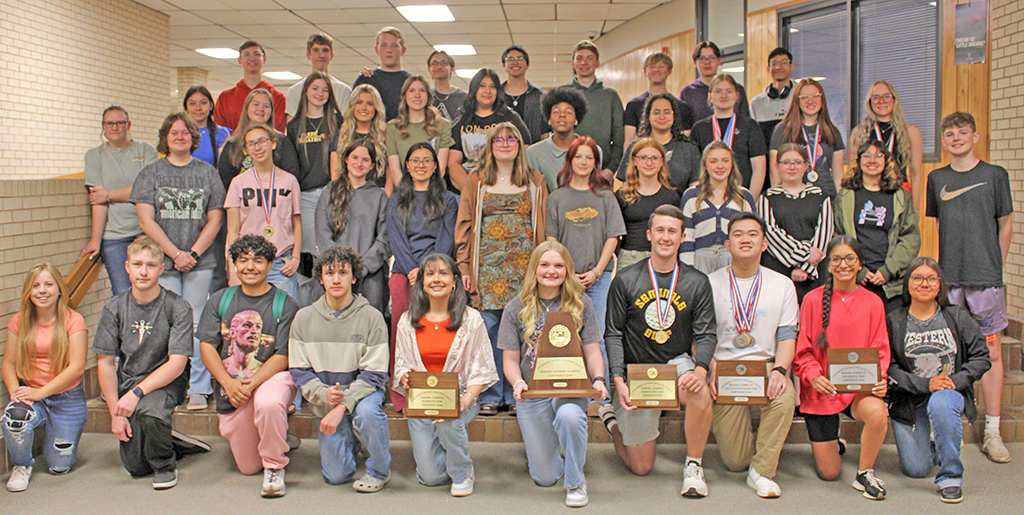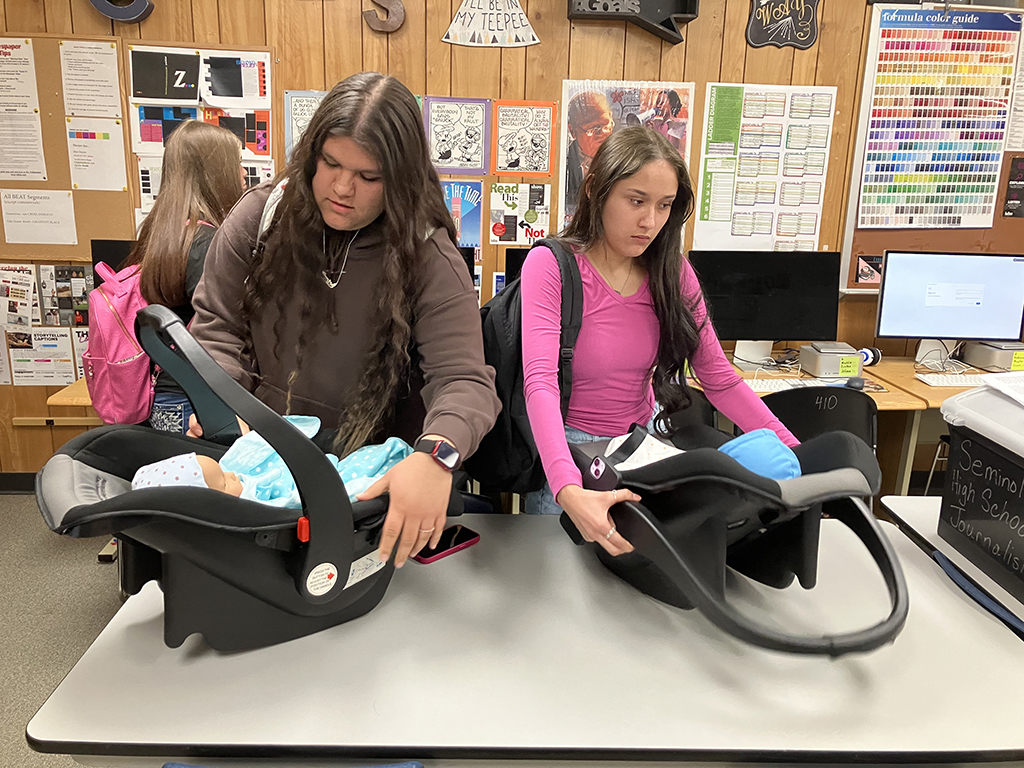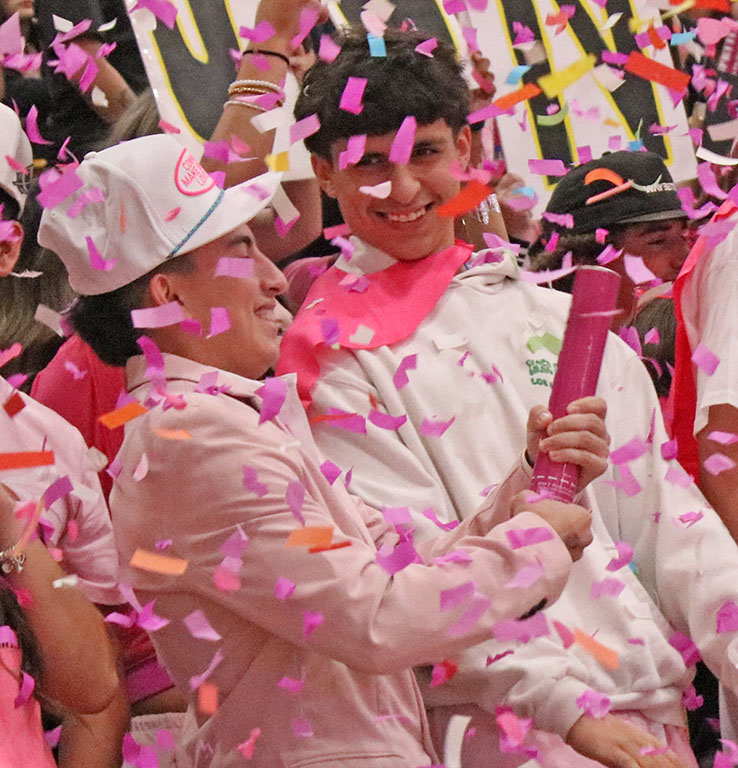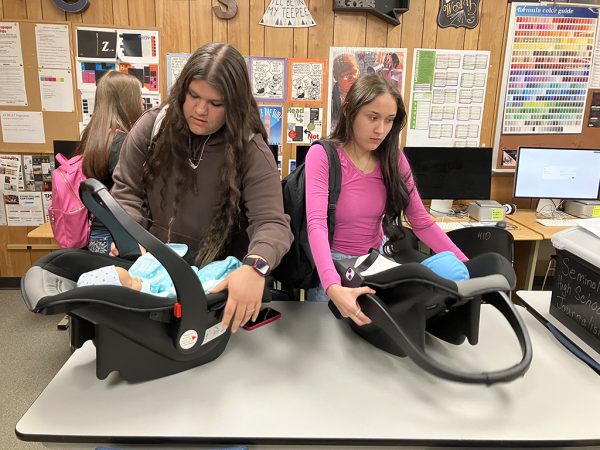Society skewed to either give or take
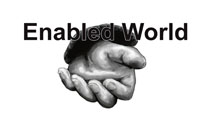
artwork by Anna Teichroeb
As technology progresses, so does the enablement of the world. People are enabled in every life situation. This giving up of power, means, competence or authority handicaps the world.
Enabling comes in a variety of forms. A person can enable or be enabled at work, school, home and through technology. Few are exempt from this phenomenon
In the workplace
On the job, employees skirt responsibiliy by letting others take the brunt of the tasks. They take as many or more days off than other employees. They only appear to be busy when the boss is around. They always have someone else do the work for them.
“There are several workers that pass as ‘working’ by doing menial tasks,” junior Jesus Ayala said, “but they aren’t doing anything productive for the store or associates or customers. They also tend to group up and chat and ignore customers.”
One of the problems with this work situation is the baffling way other employees cover up for others. By enabling the loafers, those enablers become angry and resentful.
In the school setting
Students constantly ignore school tasks, hoping they can cheat by copying others work. These enablers rely on a new Apple Watch to cheat on tests, while their teachers further enable by not paying attention during those tests. Teachers who, for instance, just copy the same worksheets every year and never work toward making lessons interesting, are enabled.
“Not so much here, but in other schools, the administration gives teachers a very strict curriculum,” biology teacher Alex Jacobs said. “I think that is a form of enabling because there is no innovation in teaching that way. It is just copying what other schools have done.”
An enabled person is too lazy to do any research or stretch his or her mind. This type of person would rather fail an assignment than put out the effort.
The blame for these lazy people also rests on those who let them get away with it. People who do all their work and stay on top of things give answers to others and let them copy their work. They tell other classes what is on teachers’ tests. Unfortunately, if class ranking and scholarships are important to enablers, then giving others their work is only working against them.
“There are a ton of enabled students, especially in the honors classes,” Ayala said. “They’re all the slackers who don’t care about anything.”
Enabling can come from classmates, teachers, and parents.
“We as teachers tend to enable students by not allowing them to work independently,” Jacobs said. “They can get help sometimes, but they need to learn to work independently or they won’t be ready for graduation.”
In the home
At home, often it is easy to let someone else do simple chores that anyone could do due to laziness.
“They are already standing, so why can’t they just do it right quick?”
Learning to take responsibility even in the small things can be liberating. “I always do things for myself or others as long as I can do them by myself,” junior Samuel Medrano said. “Independence is key.”
To a teacher, students who are enabled at home are often enabled at school.
“Not every student has someone at home to push them to do better or someone to lay down the law, so to speak,” Jacobs said. “Those that do tend to be more successful because they have fear of a consequence, not just a bad grade.”
With technology
Technology is one of the most prominent ways that people are enabled in today’s world. There is little need to do things manually when technology is around. This acts as a crutch. For instance, when the Internet isn’t working, teachers and students come to a standstill in some classes. teachers and students come to a standstill in some classes.
“Technology enables us by allowing us to have everything we need for school, work, or home right at our fingertips,” Medrano said. “We can pull up a recipe, a book, or a manual about how to build a bench. Anything we want is easily accessible for us. In the days before smart phones and the Internet, a library was a much needed place. Now, it’s just a place for hard copies of books and information. People actually used to have to take a few days looking for a specific book by an author, but now, with a few keywords, it’s pulled up in less than a second.”
So, without technology, people feel helpless. “When I didn’t have my phone for two months, and at first I felt blind,” senior Aaron Espinoza said. “I couldn’t contact anyone, I didn’t know where I was supposed to be at certain times. I adapted, but it was still challenging.”
In the long run
By being enabled, students often rob themselves of the actual education both in books and life that teaches them how to deal in the adult world.
“To students, technology has become more of a crutch than a tool,” Jacobs said. “They use it to look up answer keys rather than learning the material. It can also be used as a distration from doing what they are actually supposed to. They look at videos, pictures on Google, and shop rather than do their work. That’s why I think it’s important to monitor technology use often.”
The movie WALL*E illustrated in extreme what happened when a society was enabled. Perhaps a future like that is not far off for an enabled society.

